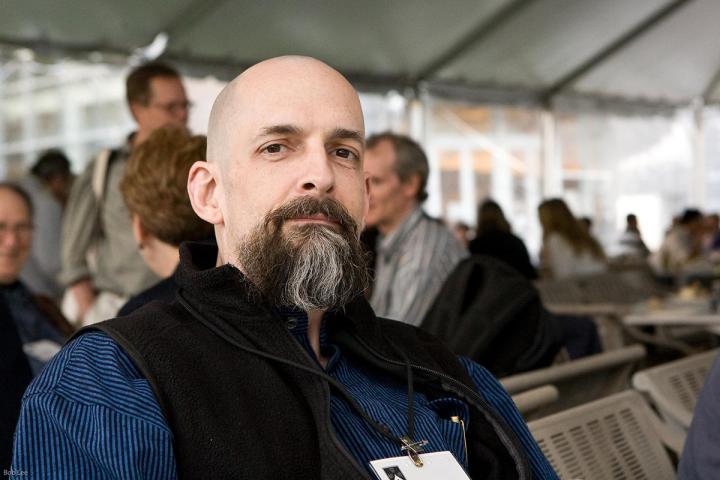
In his first blog post for the company, Stephenson elaborates on what Magic Leap’s technology does, and what he brings to the table. “Magic Leap is mustering an arsenal of techniques–some tried and true, others unbelievably advanced–to produce a synthesized light field that falls upon the retina in the same way as light reflected from real objects in your environment. Depth perception, in this system, isn’t just a trick played on the brain by showing it two slightly different images.”
“I’m fascinated by the science, but not qualified to work on it,” he says. “Where I hope I can be of use is thinking about what to do with this tech once it is available to the general public.”
Stephenson highlights the potential for Magic Leap’s technology to revolutionize gaming. “It feels like the right time to give those people a new medium: one in which three-dimensionality is a reality and not just an illusion laboriously cooked up by your brain, and in which it’s possible to get up off the couch and move–not only around your living room, but wherever on the face of the earth the story might take you. Making such games is not going to be a matter of porting existing ones to the new system. It’s going to mean redefining the medium from the ground up.”
Oculus Rift makes screens more immersive, but ultimately remains limited to the two-dimensional plane supplemented by optical trickery. Magic Leap’s technology, as Stephenson describes it, purports to interface more directly with the way our eyes works to create a natural and immersive way to interact with virtual objects and spaces.
Stephenson’s idea-saturated work has dealt with subjects like mathematics, cryptography, currency, the history of science, and philosophy, but he holds particular sway over VR enthusiasts for his revolutionary conceptualization of online virtual reality in his 1992 cyberpunk classic, Snow Crash. In that seminal work of near-future science fiction, the internet is represented as the Metaverse, a richly-realized, shared VR environment. Notably, Stephenson popularized the modern use of the word avatar in the book, co-opting the term from the Sanskrit word for a deity’s earthly representation.
The author’s last foray into gaming was Clang, a Kickstarted sword-fighting game under development by his Subotai Corporation. Subotai was developing motion controls to represent sword-fighting more accurately than any game previously had. That project was put on indefinite hold in September.
Magic Leap was founded in 2011 and has been gradually drawing the interest of investors from both Silicon Valley and the entertainment industry. The company made headlines in October for generating $542 million in funds from a group of investors led by Google.
CEO and founder Rony Abovitz has chosen to forego “virtual reality” and “augmented reality” in favor of “cinematic reality.” Those older terms, he explained, “are associated with things that didn’t necessarily deliver on a promise or live up to expectations.” Google’s investment might point toward the possibility of Magic Leaps’s technology being integrated into Google Glass at some point in the future.
The technology itself has remained largely behind closed doors so far, but hiring a noted figure like Stephenson could indicate that Magic Leap is ready to start sharing its work with the broader public.


